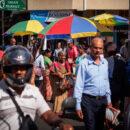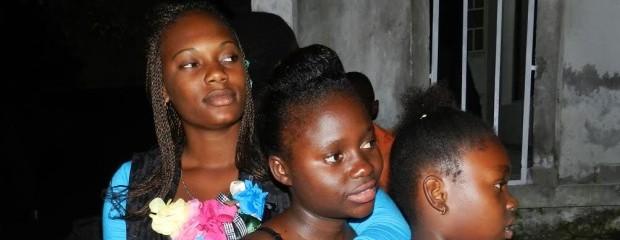DRC: US Conflict Mineral Law Opens the Door to Peace – By Bahati Jacques and Aaron Hall

 In recent weeks a debate has emerged over the merits of the conflict minerals provision in the Dodd-Frank Act. Critics of the legislation assert that the provision and those groups supporting it are responsible for causing damage to the people and communities of eastern Congo. Specifically, David Aaronson’s New York Times op-ed “˜How congress devastated Congo’ – which argues that the US law is responsible for the suffering of eastern Congolese mining communities – is irresponsibly oversimplified.
In recent weeks a debate has emerged over the merits of the conflict minerals provision in the Dodd-Frank Act. Critics of the legislation assert that the provision and those groups supporting it are responsible for causing damage to the people and communities of eastern Congo. Specifically, David Aaronson’s New York Times op-ed “˜How congress devastated Congo’ – which argues that the US law is responsible for the suffering of eastern Congolese mining communities – is irresponsibly oversimplified.
BY Bahati Jacques, Policy Analyst, Africa Faith and Justice Network (AFJN)
Aaron Hall, Policy Analyst, The Enough Project
Highlighting and embellishing the negative aspects of the current efforts to legitimize the mining sector in eastern Congo without providing historical context or highlighting positive developments raises questions of motivation and intention. At the basest level this narrative is not a constructive contribution towards a necessary debate over issues like the appropriate level of engagement from the international community, the definition of progress, and how to ensure responsible implementation of U.S. legislation in the region.
The passage of the Dodd-Frank Act combined with efforts from the Congolese government, international community, and industry stakeholders, has not only begun to reform the minerals sector in eastern Congo, but also opened the door to peace and stability in the region. Under pressure from the international community, the Congolese government and military have both become engaged, albeit reluctantly, in the issue of mineral sector reform. Dialogue and partnerships to address issues of corruption, impunity and development have been created. Dodd-Frank has given a voice to civil society where previously there was none, and has allowed groups working on community empowerment, infrastructure development, and economic diversification to join the discussion. On many levels this Act is beneficial to Congolese communities.
Most of those within the group of academics, policy analysts, and activists working on humanitarian issues in the Congo have one thing in common: the consistency of their commitment. By spotlighting the injustices and atrocities carried out in the region, these groups and individuals use the tools and audiences at their disposal to try in ways both large and small to improve the lives of their fellow man. They are committed to the larger community of those torn and oppressed from decades of conflict in Congo.
Artisanal miners are part of this larger community which has paid a high price for the extraction of resources from under their homeland. Contrary to the critics’ claim, artisanal miners will not starve due to the decreased sale of illicit minerals. Before the economic war, their communities practiced farming and mining. In late 2010, a South Kivu – based organization, Groupe Chrétien d’Appui aux Orphelins et Vulnérables pour la Paix, reporting on President Joseph Kabila’s ban on artisanal mining, said that many civilians, who could no longer mine, had returned to farming, and food production in the area was expected to subsequently increase.
The major root cause of the hardship of artisanal miners and others in communities around the mining sites is a lack of security perpetuated by the illicit mineral trade. The people who are returning to their villages in order to rebuild their lives after years of displacement need peace and stability, but instead, these people continue to pay with their lives and treasures as a result of the illicit trade of conflict minerals. Opponents of the Dodd-Frank law must ask the widow, the orphan, the victim of rape and their loved ones what their choice is – continued violence and instability accompanying trade of conflict minerals or a return to more peaceful farming and artisanal mining lifestyles.
Dodd-Frank is not a solution to the social, historical, political, and economic problems of the DRC. No single law, particularly foreign, can solve these issues. The Dodd-Frank provision is not a press release or a statement by one politician or a celebrity, but a strong and firm U.S. response to the call from the Congolese people, advocacy groups, and Congolese civil society groups for an international effort to end years of illicit plundering. The US action has generated international, regional and national focus on this issue and the crimes accompanying it.
Dodd-Frank is not a panacea, but it provides the Congolese people with an opportunity to build peace in their nation. The US government must enforce section 1502 of Dodd-Frank law to ensure that no American money is financing the war in the DRC.
Consistency to commitment within the human rights community is what matters and constructive debate is essential. As groups with inherently limited resources, we are far more powerful united than divided. Unconstructive infighting and finger pointing only serves the interests of private industry lobbyists, corrupt leaders, and warlords in Congo – those who actually bear the responsibility for the plight of communities in eastern Congo.
The debate over how to mitigate conflict and instability in Congo warrants both input and understanding as complex and nuanced as the conflict itself. Unfortunately, within the small community of international Congo policy watchers this debate is often simplified in order to connect with the general public. There is a need for a more holistic debate around how to reduce violence and oppression in eastern Congo. There are a number of experts both Congolese and international who should contribute. But at a fundamental level, understanding the political and historical contexts of community and political engagement is critical for the formulation of successful strategies from those hoping to create peace and development in the region.





